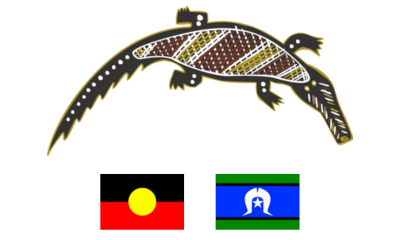The Realist Research Evaluation and Learning Initiative (RREALI) team at Charles Darwin University are pleased to announce three new online courses in realist research and evaluation methodology being offered in 2025.
Each course is fully online and offered in two different modes. The two modes are taught together in one cohort, with identical course content.
- Microcredentials require assessment and provide a formal academic transcript and university credit points.
- Non-Accredited Short Courses do not require assessment and provide a certificate of attendance only.
2025 Program
| Course | Introduction to Realist Philosophy of Science | Realist Review | Realist Evaluation |
| Teaching period | 28 April – 23 May | 23 June – 11 July | 18 August – 05 September |
| Weekly online workshop meeting times | Tuesdays 9:30 am – 12:30 pm AEST | Thursdays 6:00 pm – 9:00 pm AEST | Tuesdays 9:30 am – 12:30 pm AEST |
| Assessment period | 24 May – 30 May | 12 July – 18 July | 06 – 12 September |
| Final assessment due (11:59pm AEST) | 30 May | 18 July | 12 September |
| Grade release | Week of 16 June | Week of 11 August | Week of 06 October |
| Cost for Microcredential (AUD) | $1308 | $981 | $981 |
| Cost for non-accredited short course (AUD) | $785 | $590 | $590 |
Please note: 1. Second workshop times may be offered depending on demand. 2. Assessments and grade releases do not apply to short courses
Who should attend?
- Postgraduate students using, or considering the use of, realist research/evaluation
- Evaluators and researchers undertaking or planning realist research/evaluation
- Commissioners of realist research/evaluation
How do I register?
See below for a description of each of the courses, and register using the individual links provided.
Available courses
Introduction to Realist Philosophy of Science
Gain a solid grounding in the realist philosophy of science, the foundation for all realist work. It is strongly recommended that you complete this course prior to taking Realist Review and/or Realist Evaluation.
Microcredential Option
28 April – 01 June 2025 (4 weeks, plus 5th week for assessment)
$1308 AUD
Register for micro-credential: MIC505 Introduction to Realist Philosophy of Science
Non-Accredited Option
28 April – 25 May 2025 (4 weeks)
$785 AUD
Register for short course: ZSC021 Introduction to Realist Philosophy of Science
About:
This course provides the grounding required for work or study in realist research and evaluation. It introduces:
- key terminology in realist research and differences from the common meanings of those terms;
- assumptions about the nature of reality and the nature of knowledge which underpin realist approaches;
- key differences between realist, empiricist and constructivist philosophies of research or evaluation;
- a realist understanding of causation and heuristics for causation;
- differences between realist and other forms of program theory; and
- the structure of realist research and evaluation questions.
This course is ideal for postgraduate students using, or considering the use of, realist approaches in their research, professionals and academics using realist approaches, and commissioners of realist evaluation and other realist research. It is strongly recommended that students undertake this course prior to undertaking other CDU courses in realist approaches.
The total time commitment is approximately 60 hours for microcredential participants and 36 hours for non-accredited short-course participants. Contact hours are spread over four weeks, with a fifth week for completion of a written assessment (micro-credential participants only). Contact weeks include 2 hours of asynchronous (pre-recorded) lecture(s) and an online 3-hour workshop each week, with 4 hours of reading. An additional 3 hours per week is allocated for weekly assignments for micro-credential participants. In the fifth (assessment) week, completion of the primary written assessment has been estimated at 12 hours.
For microcredential participants, there will be weekly assignments of approximately 500 words, and a final assignment of 1000 words which builds from the weekly assignments and applies key concepts to the participant’s own research or evaluation project. Successful completion of the microcredential attracts 4 credit points reflected in a formal academic transcript.
Realist Review
Learn how to design and conduct a realist literature review.
Microcredential Option
23 June – 20 July 2025 (3 weeks, plus 4th week for assessment)
$981 AUD
Register for microcredential: MIC506 Realist Review
Non-Accredited Option
23 June – 13 July 2025 (3 weeks)
$590 AUD
To register for the short course: ZSC022 Realist Review
About:
This course introduces methods in realist review (the realist approach to synthesis of existing literature and evidence) and explains their grounding in a realist philosophy of science. Students practice skills in scoping a realist review, developing program theory to guide the review, developing a realist search strategy for evidence, extracting evidence from literature, and synthesising findings. International reporting and quality standards (‘the Rameses standards’) for realist review will be used for self-assessment and as a tool for instructor feedback.
This course is ideal for postgraduate students using, or considering the use of, realist evaluation, professionals and academics undertaking or planning realist evaluations, and commissioners of realist evaluation. Some content is also relevant to those undertaking realist reviews. It is strongly recommended that participants complete the microcredential/short course Introduction to Realist Philosophy of Science prior to undertaking this course.
The total time commitment is approximately 45 hours for microcredential participants and 27 hours for non-accredited short-course participants. The course will have contact hours over three weeks and a fourth week for completion of a written assessment. Each contact week will include 2 hours of asynchronous (pre-recorded) lectures, an online 3-hour workshop, and 4 hours of reading. For microcredential participants, 3 hours is allowed for weekly assignments. An additional week has been allocated for completion of the final written assessment, estimated at 9 hours.
For microcredential participants, there will be weekly assignments focusing on tasks required for realist reviews (writing review questions, developing realist programme theory, developing coding frameworks) and a final assignment of 1000-1500 words which builds from the weekly assignments and designs a realist review for the participant’s nominated topic. Successful completion of the microcredential attracts 3 credit points reflected in a formal academic transcript.
Realist Evaluation
Learn how to design and conduct a realist evaluation.
Microcredential Option
18 Aug – 14 Sept 2025 (3 weeks, plus 4th week for assessment)
$981 AUD
Register for the microcredential: MIC507 Realist Evaluation
Non-Accredited Option
18 Aug – 07 Sept 2025 (3 weeks)
$590 AUD
Register for the short course: ZSC023 Realist Evaluation
About:
This course examines methodology and methods in realist evaluation. Students develop understanding and/or skills in:
- developing realist program theory,
- designing realist evaluations,
- developing instruments and selecting samples for surveys and interviews,
- principles for qualitative and quantitative analysis, and
- reporting in line with international standards (‘the Rameses standards’) for realist evaluation.
The Rameses standards will be used for self-assessment and as a tool for instructor feedback.
This course is ideal for postgraduate students using, or considering the use of, realist evaluation; professionals and academics undertaking or planning realist evaluations; and commissioners of realist evaluation. Some content is also relevant to those undertaking realist reviews. It is strongly recommended that participants complete the microcredential/short course Introduction to Realist Philosophy of Science prior to undertaking this course.
The total time commitment is approximately 45 hours for micro-credential participants and 27 hours for short-course participants. The course will have contact hours over three weeks and a fourth week for completion of a written assessment. Each contact week will include 2 hours of asynchronous (pre-recorded) lectures, an online 3-hour workshop, and 4 hours of reading. For micro-credential participants, 3 hours is allowed for weekly assignments. An additional week has been allocated for completion of the final written assessment, estimated at 9 hours.
For microcredential participants, there will be weekly assignments focusing on tasks required for realist evaluations (writing evaluation questions, developing realist programme theory, developing instruments) and a final assignment of 1000-1500 words which builds from the weekly assignments and designs a realist evaluation for the participant’s nominated project. Successful completion of the microcredential attracts 3 credit points reflected in a formal academic transcript.
Additional course and eligibility information
Courses:
- Taken as microcredentials, the three units together are equivalent to and can be recognised for a 10 credit point unit, “Realist Research and Evaluation”, offered as part of the Master of Public Policy at Charles Darwin University and available as an elective in many other Master programs.
- Microcredentials and short courses will be taught in one cohort with identical course content. The courses are fully online, with all required reading materials supplied.
Support:
- The teaching staff are experts in realist methodology, and there is time each week to ask questions and answer questions tailored to your own research or evaluation. Workshops also provide an opportunity to learn with and from peers.
Eligibility:
- Participants will normally have a recognised undergraduate degree and a working understanding of evaluation of policy or programs. Participants will need access to a computer and the internet, basic computer literacy skills, and a high degree of literacy suitable for reading academic English language texts and being proficient in English.
- Microcredentials are not suitable for international student visa holders in Australia. Micro-credentials are not eligible for subsidies from the Australian government.
Meet the facilitators
Professor Gill Westhorp
Professorial Research Fellow at Northern Institute, CDU
Gill is co-author of the international standards for realist evaluation and realist review and has 25 years of experience using realist approaches in multiple sectors, including community services, health, education, and international development. She is the foremost realist expert in Australia/New Zealand and leader of the RREALI team at CDU.
Dr Kerryn O’Rourke
Senior Research Fellow at Northern Institute, CDU
Kerryn is a social science and public health researcher with expertise in equity, spanning primary prevention of illness through to the social dimensions of health care services. Kerryn has been doing realist work for 8 years.
Cara Donohue
Research Fellow at Northern Institute, CDU
Cara is an evaluator/researcher in international development, with experience working with organisations ranging from grassroots initiatives to large INGOs. She has been using realist methodology in her work since 2015.
NI acknowledges the Larrakia Nation (Saltwater People), the Traditional Custodians of the region where our NI Research Support Services are located and their continuing governance and care for community, land and waters. We pay our respect to Aboriginal and Torres Strait Islander cultures and elders past and present. We stand with Indigenous struggles for social justice, empowerment and equity in Australia and globally.
⚠️ Aboriginal and Torres Strait Islander peoples should be aware that this website, linked publications and content may contain images, voices and names of people who have died.




